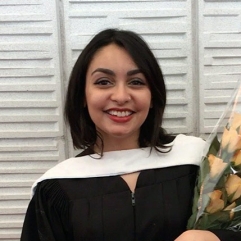Philosophy (BA)
Virtual information sessions
Discover what makes Concordia's Faculty of Arts and Science stand out as a leader in the humanities and social and natural sciences, including academic opportunities, hands-on learning and how to achieve your goals.
Why study Philosophy?
Philosophers reflect on some of the world’s most serious problems: the basis of ethical action, human rights, global justice or our relationship with the environment. Or they ask questions about what the mind, knowledge, science, identity, gender and sexuality really are. Whatever the issue, philosophers learn how to analyze ideas and arguments, and reason well. They also make discoveries about the history of ideas and how this shapes the way we think about contemporary life.
Studying philosophy will open your eyes to these deep ideas and questions, teach you to analyze them with philosophical insight and rigour, to read, write and reason well, and build skills for speech and debate. As you reflect on the assumptions that inform our social, political, and scientific practices, you will think about, and relate to, the political, social and natural world in an entirely new way.
An undergraduate degree in philosophy is the stepping stone to graduate studies or a wide variety of careers that require critical thinking, careful writing, or superior communication skills.
Program highlights
- Student-run philosophy Peer Tutoring program aims to help students help each other succeed
- Opportunities to study abroad while completing your program through the Concordia Student Exchange Program
Special funding for out-of-province students
Up to $4000 for undergraduate programs.
Program structure
A Bachelor of Arts degree takes a minimum of three or four years (90–120 credits) of full-time study, depending on your academic background.
Program options
- Honours in Philosophy (60 credits)*
- Major in Philosophy (36 credits)
- Minor in Philosophy (24 credits)
*Honours is a highly concentrated program, ideal for students planning to continue to graduate studies. If you are interested in Honours, speak with your program advisor in your first year of study at Concordia. Students applying to the University are able to apply to the major.
Courses
United States students: A U.S. Federal Student Aid-eligible version of this program is offered. This version meets all U.S. regulations (such as no co-operative education or e-courses) for eligible programs.
Admission criteria
Minimum cut-off averages and course requirements
- Quebec CEGEP: DEC
- High School: C+
- ACT or SAT is NOT required
- Canadian curricula course requirements
- Accepted international qualifications
- International Baccalaureate (IB) diploma: 26
- International Baccalaureate Career-related Programme (CP): 26
- Baccalauréat français: 11
- British system of education (GCE):
- A-levels: At least two A-level exams CD or
- AS-levels: At least 4 AS-level exams with equivalent results or
- BTEC: Level 3 Diploma or Extended Diploma in a related subject area with equivalent results
- Additional information for British System of Education (GCE) applicants
- University Transfers (internal/external): C
Minimum cut-off averages should be used as indicators. The cut-off data may change depending on the applicant pool. Applicants who meet the stated minimum requirements are not guaranteed admission to these programs.
Application deadlines
It’s not too late to apply
Most undergraduate programs are still accepting applications for fall 2025.

FALL ENTRY (September)
Deadline: March 1
International applicants: Apply no later than February 1 to allow time for immigration document processing. However, applying earlier is strongly recommended. Immigration processing times vary by country, and delays could prevent you from starting your studies on time.

WINTER ENTRY (January)
Deadline: November 1
International applicants: Apply no later than August 1 to allow time for immigration document processing. However, applying earlier is strongly recommended. Immigration processing times vary by country, and delays could prevent you from starting your studies on time.
We reserve the right to close admission to a program at any time after the official deadline without prior notice.
Student story

Rutvi Ajmera
Honours in Philosophy Major in Political Science
I developed the ability to identify where information comes from and to think about how we receive it.
Other programs of interest

A liberal arts education equips you for life. The Liberal Arts program teaches you to think critically, enhance your communication skills and become a more resourceful, innovative and self-confident person.
Department
Faculty

Investigate the mysteries of the past. Historians are detectives, picking up a loose thread in the social fabric and unraveling it to weave a new narrative through time
Department
Faculty

Political science teaches you how the world works. As one of Concordia’s most popular degree choices, you will meet the world up close: in class, in action and in person.
Department
Department of Political Science
Faculty


